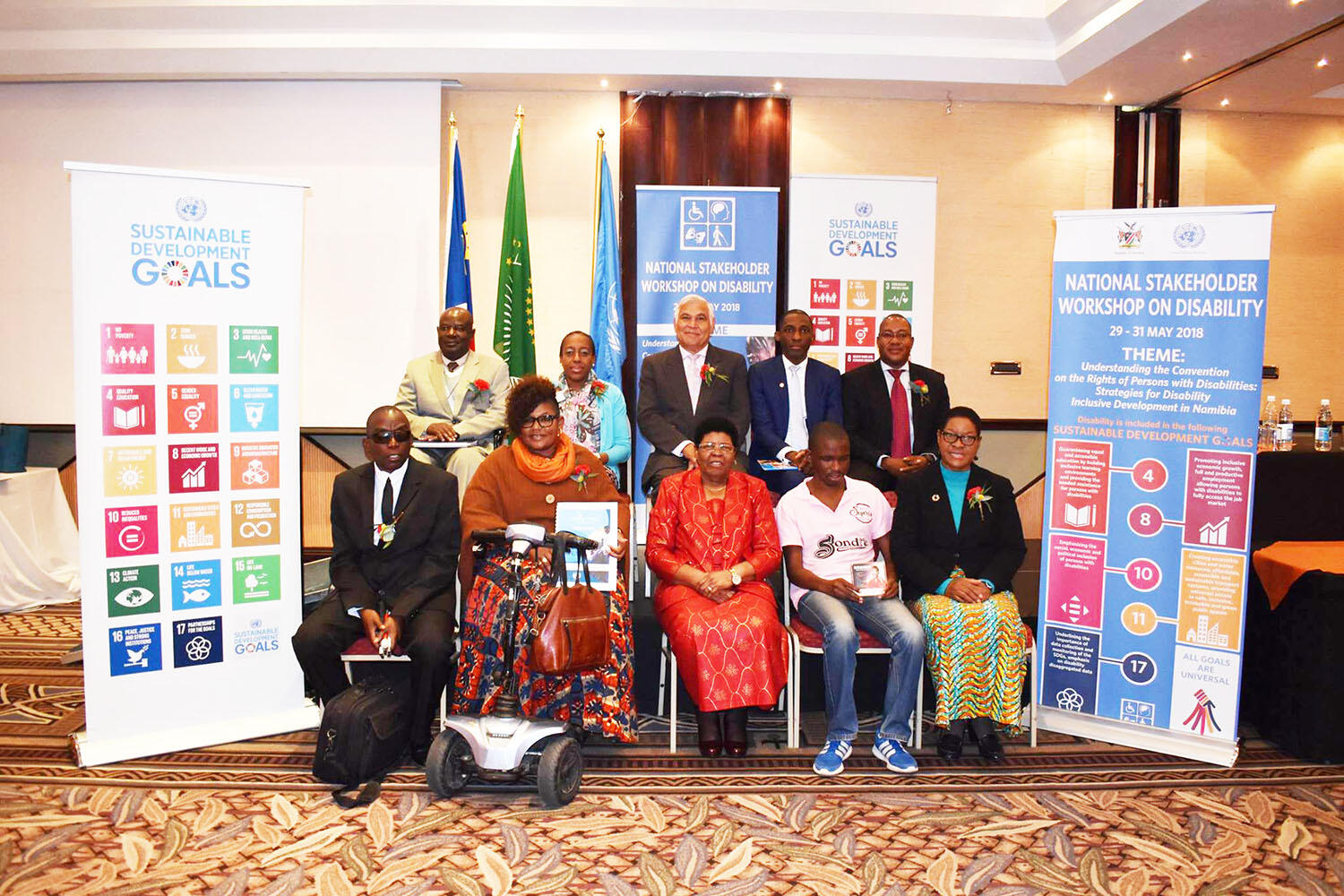Windhoek- Disability continues to be addressed with a charity approach rather than a Human Rights approach in Namibia, stakeholders concluded following the National Workshop on Disability which took place in Windhoek from 29-31 May.
The three-day workshop brought together representatives from the Government of the Republic of Namibia (GRN), the United Nations (UN), Organisations of Persons with Disabilities (OPDs), Civil Society Organisations (CSOs), service providers, Academia and persons with disabilities (PwDs) from across the country.
Under the theme, “Understanding the Convention on the Rights of Persons with Disabilities (UNCRPD): Strategies for effective disability mainstreaming in Namibia”, the workshop sought to ensure the full implementation of the landmark global treaty, the UNCRPD and the Optional Protocol of 2007. This treaty takes to a new height the movement from viewing persons with disabilities as “objects” towards viewing persons with disabilities as “subjects” with rights.
Speaking at the opening ceremony of the workshop, the Resident Coordinator to Namibia a.i., Rachel Odede reiterated the UN System in Namibia’s commitment to supporting Namibia in fully implementing the UNCRPD and addressing the barriers to inclusion of persons with disabilities across society.
“We shall continue to challenge the barriers, discrimination and prejudice that persons with disabilities face every day and ensure that we demonstrate that an independent life is both possible and affordable regardless of a person’s physical or mental differences”, emphasised Odede.
In Namibia, the Namibia Statistics Agency (NSA) Inter-censal Demographic Survey of 2016, found that persons with disabilities make up 5% of the total population. Based on World Health Organisation (WHO) and World Bank estimates, the actual number may be as high as 15%.
Throughout the workshop, participants gained information about the challenges this significant percentage of the population experiences, including in the provision of health, early childhood development, education, economic development or social interaction. This information was further backed by personal experiences of PwDs in attendance.
Hon. Agnes Tjongarero, Deputy Minister of Sport, Youth and National Service, on behalf of His Excellency Nangolo Mbumba, the Vice President of the Republic of Namibia, highlighted the importance of addressing these challenges. She said, “Persons with disabilities deserve the same chance to make the most of their lives and to make their voices heard as everyone else in our country”.
After fruitful discussions, the stakeholders came up with several recommendations, including the need to:
• update negative terminology in media, communities, policies and frameworks;
• increase the inclusion of PwDs in decision-making well as sensitise the local media about correct disability terminology;
• desegregate data in terms of types of disabilities;
• ensure that assistive devices are available for PwDs to participate fully in society; and
• implement a quota system to ensure that the percentage of the population that has disabilities also benefits accordingly from housing allocations and employment.
The workshop’s recommendations will be tabled at a follow-up National Disability Conference, at which policy makers will be in attendance. By coming up with interventions for persons with disability to join the mainstream of national development, Namibia will affirm the UNCRPD commitment to mainstream disability issues as an integral part of sustainable development.


